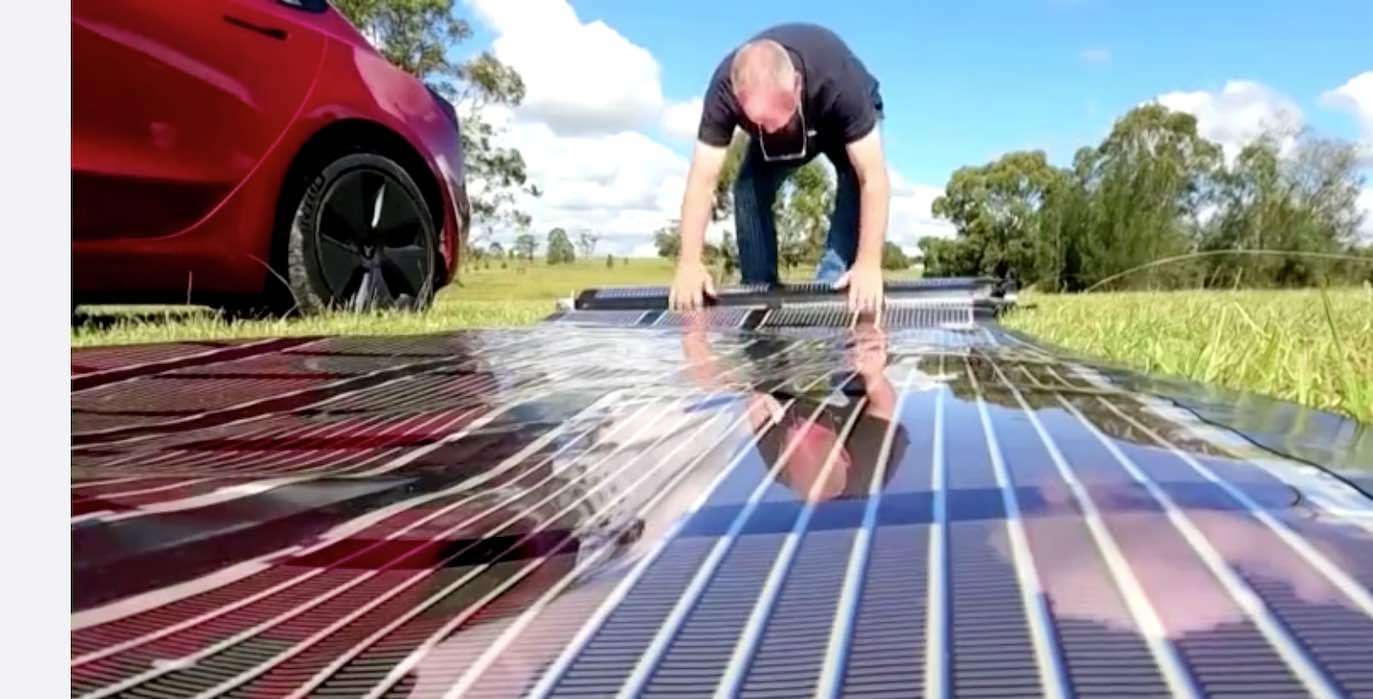Startup Designs Prefab Facades That Turn Energy-Sucking Buildings Into Power Providers
The panels which install in 20 minutes, were able to make the most inefficient buildings in Germany carbon-neutral.

Scientists from Australia and Britain are planning to take a 9,400-mile road trip through some of the most remote regions of the world in a Tesla, all the while charging the batteries by unrolling a plastic solar panel sheet.
Called the Charge Around Australia project, the team is getting Australians to think about ways that energy can become more sustainable.
The inventor of the roll-up solar panel, Paul Dastoor, says these parts of Western and Central Australia are probably the most remote in the world—with scorching temperatures, vast distances, and a lack of water that prohibits comfortable human habitation.
Tackling these miles in a Tesla is a big undertaking, but it has the benefit of putting the solar panels immediately under the most extreme conditions imaginable, where dirt and dust, daily rolling and unrolling, high heat, and repeated use will provide the ultimate test of their merit.
Aside from the price point, the biggest hesitancy among consumers to buy electric cars is "range anxiety" and a lack of charging stations near them. Some companies are inventing mobile charging packs, but they're slow, expensive, and vulnerable to theft.
Printed by a machine used to make wine labels, these solar panels address all these problems, as they cost around $3.33 per square foot. They consist of a transparent solar electrode laminated in PET plastic. Dastoor's wine-label appropriated technology allows his team to print around a third of a mile, or half a kilometer of solar cell strips every day.
The 84-day journey will include stops at around 70 schools to give talks on the technology, how it can help prevent climate change, and what everyone around the world can do as well.
The team's hope is that Tesla founder Elon Musk will think the project was really cool for "showing how our innovative technology is now combining with his developments to develop new solutions for the planet", Dastoor told Reuters.
(WATCH the Reuters video below to see more details…)
POWER Up the Good News; Share This Story From Down Under…
Be the first to comment